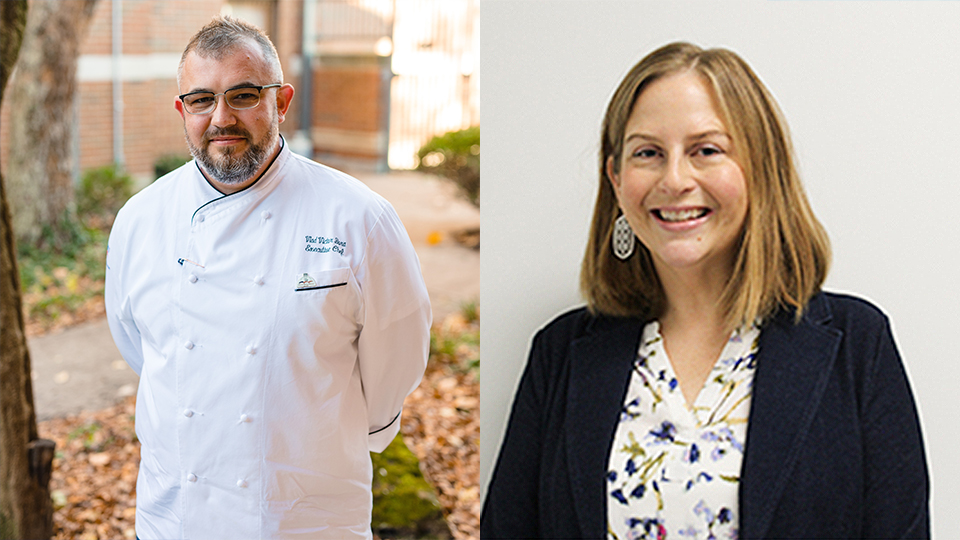How consistent, healthy meal access impacts Hoosier families in crisis
Subscriber Benefit
As a subscriber you can listen to articles at work, in the car, or while you work out. Subscribe Now
Partnerships are everything to nonprofits. For Ronald McDonald House Charities of Central Indiana (RMHCCIN), which provides a supportive home away from home for families of children receiving medical care at Riley Hospital for Children at Indiana University Health and other area hospitals, and Second Helpings, a community kitchen that prepares and delivers more than one million meals to the Central Indiana community each year, the last thing they want individuals to think about is where they’re getting their next meal.
When families are in crisis, such as a child suddenly in the hospital, they could be facing food insecurity, especially when many families come to stay at the Ronald McDonald House from areas all over the state as specialized medical care is often regionalized. Executive Chef of Ronald McDonald House Charities of Central Indiana, Vlad V. Bora, and CEO of Second Helpings, Linda Broadfoot, share the impact of food insecurity on Hoosiers and how their partnership allows families to be worry-free about accessing consistent, healthy meals in the most difficult time of their lives.
When someone is food insecure, it means they cannot get enough food to be healthy.
The U.S. Department of Agriculture defines food insecurity as a lack of consistent access to enough food for an active, healthy life. Healthy food exists, but it’s about consistent access. It’s not about having a full, healthy meal once in a while, rather, it’s being able to have access every day. Food impacts every part of our health, especially for kids, so getting all the nutritional elements is important in order for them to grow properly and focus in the classroom. If an adult doesn’t have consistent access, they can’t concentrate, learn, work and their body can’t grow properly either. Whatever they can access, is there nutritional variety at an affordable price? If not, that family or individual may be facing food insecurity.
Food insecurity and sudden crises impact Hoosiers more than we may realize.
According to the Indy Hunger Network, 888,600 people go hungry in Indiana and 270,000 people need food assistance in Marion County, which is about 25% of the population in Indianapolis. At the beginning of the COVID-19 pandemic, the need for meals went up drastically – within a month in March 2020. Second Helpings saw many individuals needing food assistance for the first time. It serves as a reminder that anyone is one emergency or crisis away from being in a very different financial situation where consistent, healthy food is not obtainable.
This can also happen to a family if they suddenly need to travel to seek specialized medical care for their sick or injured child. When families arrive for the first time at the Ronald McDonald House, they are in complete distress. Many arrive with just the clothes on their backs. RMHCCIN’s mission is to keep families close and near the care they need, and that includes access to healthy, home-cooked meals. Families can’t focus on taking care of their children if their own well-being is suffering.
This partnership is essential to the food operations at the Ronald McDonald House and in the Ronald McDonald Family Rooms.
Each day, Second Helpings provides meals for families staying at the Ronald McDonald House on Limestone Street and in the Ronald McDonald Family Rooms located in Riley Hospital for Children at Indiana University Health. Since the Family Rooms became a partner agency in 2019, they’ve provided over 17,000 meals and over 1,000 pounds of food. The House became a partner agency in December 2020, and Second Helpings has provided over 3,500 meals and over 8,000 pounds of food for families since then. The pounds of food can be ingredients, snacks or any excess food that Chef V. and volunteer groups cook into meals or stock in the House’s pantry through RMHCCIN’s Meals that Heal program. In addition to food, Second Helpings provides vital professional kitchen equipment for the House to use during meal preparation.
Many families could face food insecurity without the guarantee of healthy, home-cooked meals.
For those facing food insecurity, difficult choices are made every day. For some, it can be deciding to purchase more groceries for the week or paying the electric bill. For others, it can be paying for their medication or buying food for their kids. For a family facing a medical emergency or new diagnosis, it can completely throw their budget out the window. The benefits of guaranteed healthy, home-cooked meals go beyond the body’s physical need for the food. It brings families together in a space different from their room at the House or their child’s bedside in the hospital. Families get the opportunity to talk with other families going through similar situations which can help overcome some of the pain.
Additionally, although they’re at the Ronald McDonald House dinner table and not at their home, it allows them to maintain some piece of their routine that’s not lost in between procedures, doctor appointments, tests, etc. At the end of a stressful day at the hospital, having this meal access doesn’t solve the crisis they’re going through, but it can make a real difference in their spirit and outlook so they can focus on what matters most – caring for their child.
